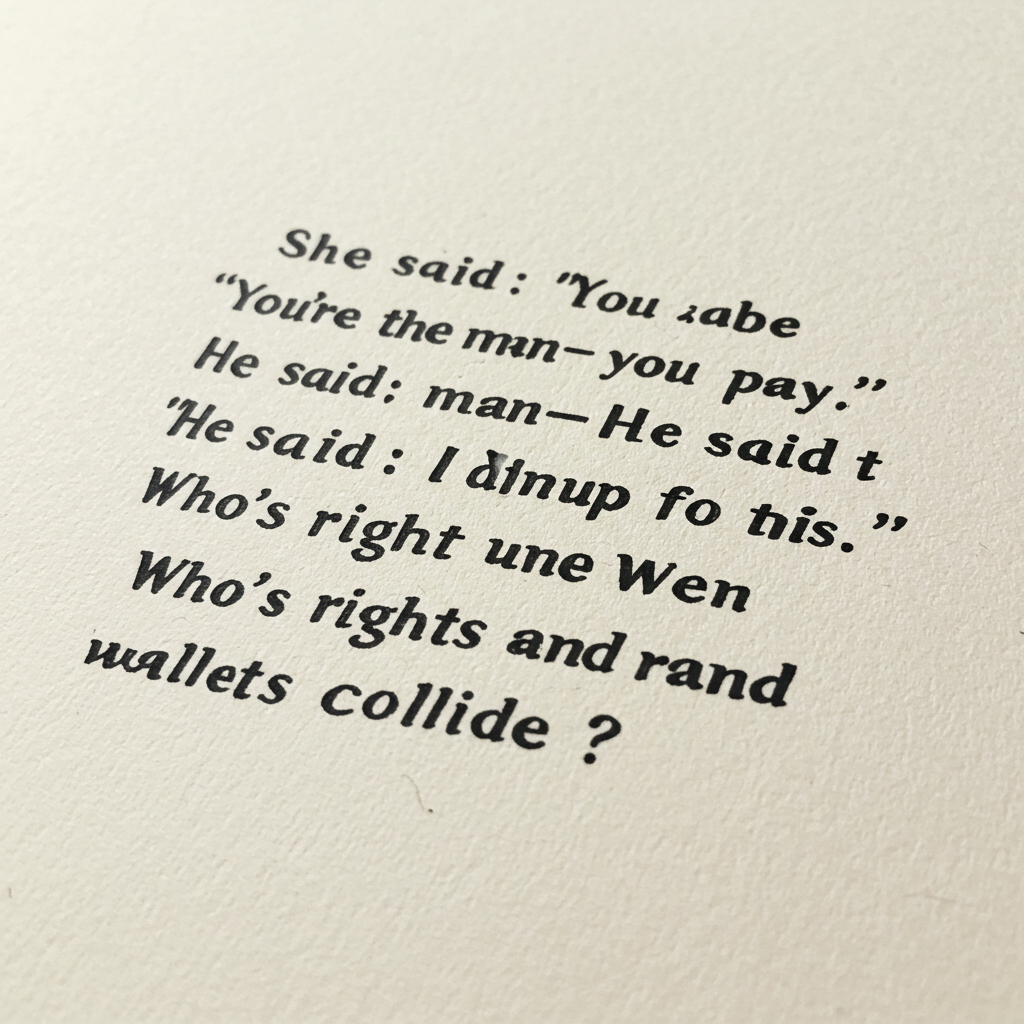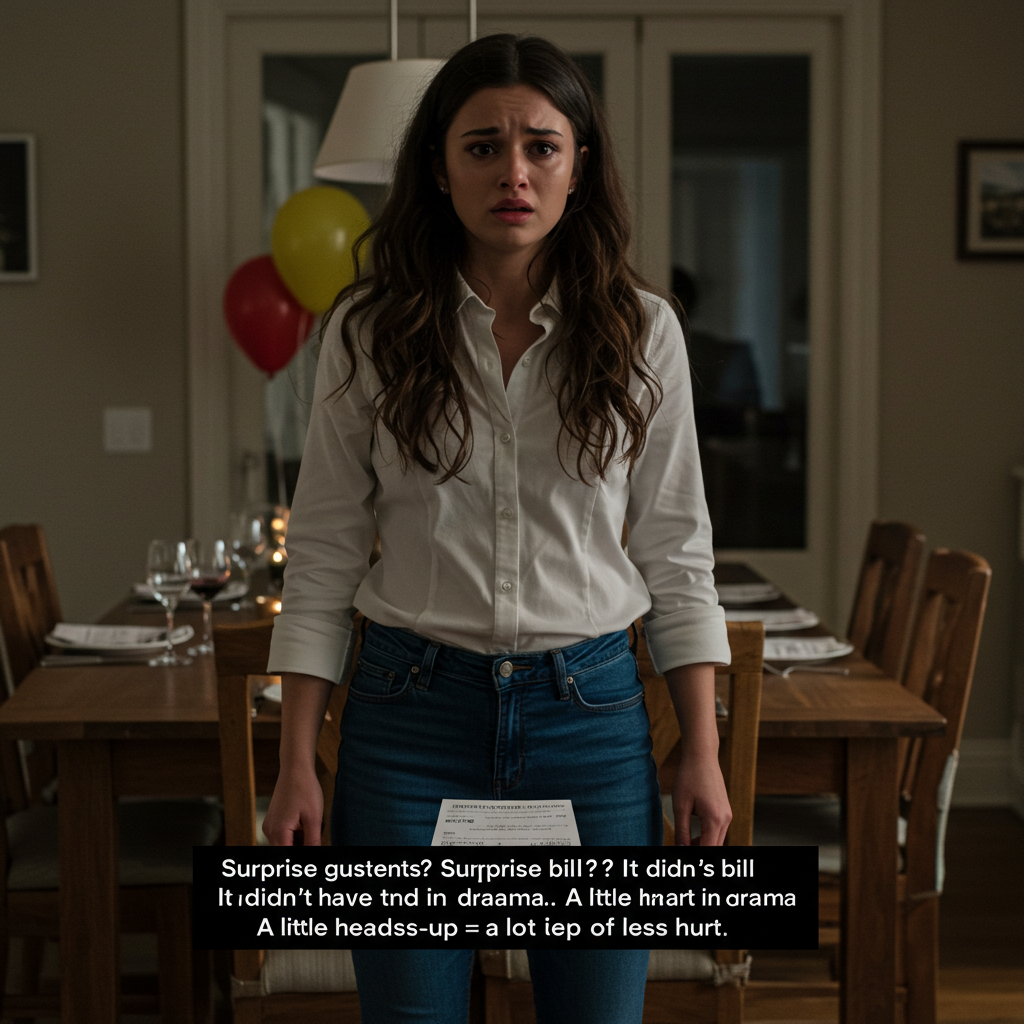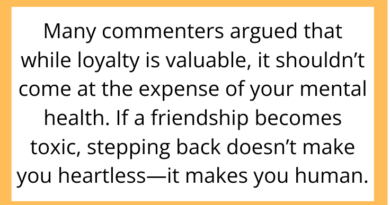AITAH for Not Wanting to Pay for My Girlfriend’s Friends at Dinner?
Dating often comes with unspoken expectations—but what happens when generosity turns into obligation? In today’s AITAH scenario, we dive into a heated situation where one man’s refusal to cover the bill leads to a major relationship clash. Was he being cheap—or simply setting boundaries?
Let’s break it down.
The Dinner That Sparked a Debate

A 28-year-old man—let’s call him Rohan—posted on r/AITAH after a seemingly simple night out turned into a full-blown argument with his girlfriend, Alina.
According to Rohan, he had planned a dinner date at a trendy new restaurant to celebrate Alina’s recent promotion. When they arrived, Alina had a surprise: three of her close friends were already seated at the table.
Rohan hadn’t been informed in advance, but he didn’t want to make a scene. He smiled, made polite conversation, and assumed he and Alina would each cover their own tabs. But when the bill came, Alina passed it to him without hesitation.
The Conflict: “You’re Supposed to Be the Man”

Rohan paused. The bill was over $300. He quietly asked Alina if she wanted to split or at least cover her friends. She looked shocked and said, “You’re supposed to be the man. It’s common courtesy.”
Rohan replied that he was happy to celebrate her, but he hadn’t agreed to pay for a group dinner—especially not for people he didn’t invite or know well. Alina was furious. She called him “stingy,” “embarrassing,” and later told their mutual friends he humiliated her in front of her girls.
Rohan left the tip and covered his and Alina’s portion, but the damage was done.
Feeling confused and frustrated, he turned to Reddit and asked: AITAH for refusing to pay for my girlfriend’s friends at dinner?
Expectations vs. Agreements: Who’s in the Right?

Rohan’s Side: Courtesy Has Limits
Rohan didn’t object to celebrating Alina. He planned the night, picked the place, and intended to treat her. But the unannounced presence of three extra guests—without prior discussion—changed the dynamics.
He wasn’t being asked to treat someone to dessert. He was being handed a surprise $300 tab and expected to foot it silently.
In his eyes, respect and generosity go both ways. He wasn’t consulted, yet he was expected to play the role of a provider—on demand.
Alina’s Side: Relationship Norms and Social Cues
Alina might’ve genuinely believed Rohan would cover the meal. Maybe in her social circle, that’s a standard move. In her view, the dinner was a shared celebration. Her friends were part of her joy, and she thought Rohan would honor that moment by extending the treat.
Her frustration may have come not just from the payment, but from feeling unsupported or embarrassed when Rohan said no.
Reddit Reacts: Commenters Are Divided

The AITAH community had strong opinions.
The top comment read:
“NTA. She ambushed you with guests and expected you to pay without warning. That’s manipulative, not romantic.”
Others pointed out the power dynamics:
“If the genders were reversed and a woman was expected to pay for her boyfriend’s friends without warning, everyone would call it out. This is no different.”
A few, however, did sympathize with Alina:
“If this is your serious girlfriend, she may have expected you to treat her whole ‘team’ as a show of support. But still—communication matters.”
Relationship Boundaries: Generosity vs. Obligation

The Real Issue? Lack of Communication
At its core, this isn’t about money—it’s about expectations. Rohan and Alina clearly didn’t talk about what the evening would look like. She assumed one thing. He assumed another.
This scenario brings up important questions:
-
Is it okay to surprise your partner with guests and expect them to pay?
-
Should generosity be expected or freely given?
-
How do you draw the line between support and being taken advantage of?
Lessons Learned: Set Expectations Early

Whether you’re in a new relationship or a long-term partnership, clear communication is crucial. Money matters can quickly turn emotional, especially when pride and social pressure are involved.
Here’s what both Rohan and Alina could have done differently:
What Rohan Could Have Done:
-
Asked calmly before dinner if the plan had changed.
-
Had a private conversation after the dinner rather than reacting in front of guests.
-
Set a clear financial boundary moving forward.
What Alina Could Have Done:
-
Let Rohan know ahead of time about inviting friends.
-
Asked before assuming he’d cover the bill.
-
Acknowledged his effort in planning the night—rather than escalating the conflict.
Final Verdict: Not the Villain—Just Unprepared

Rohan wasn’t wrong for saying no. Generosity loses its meaning when it’s demanded. While Alina may have had different expectations, springing a surprise bill on someone—especially in public—is a breach of trust, not just etiquette.
This situation reminds us that “being the man” doesn’t mean being the bank. It means being respectful, thoughtful, and honest. And that goes both ways.



